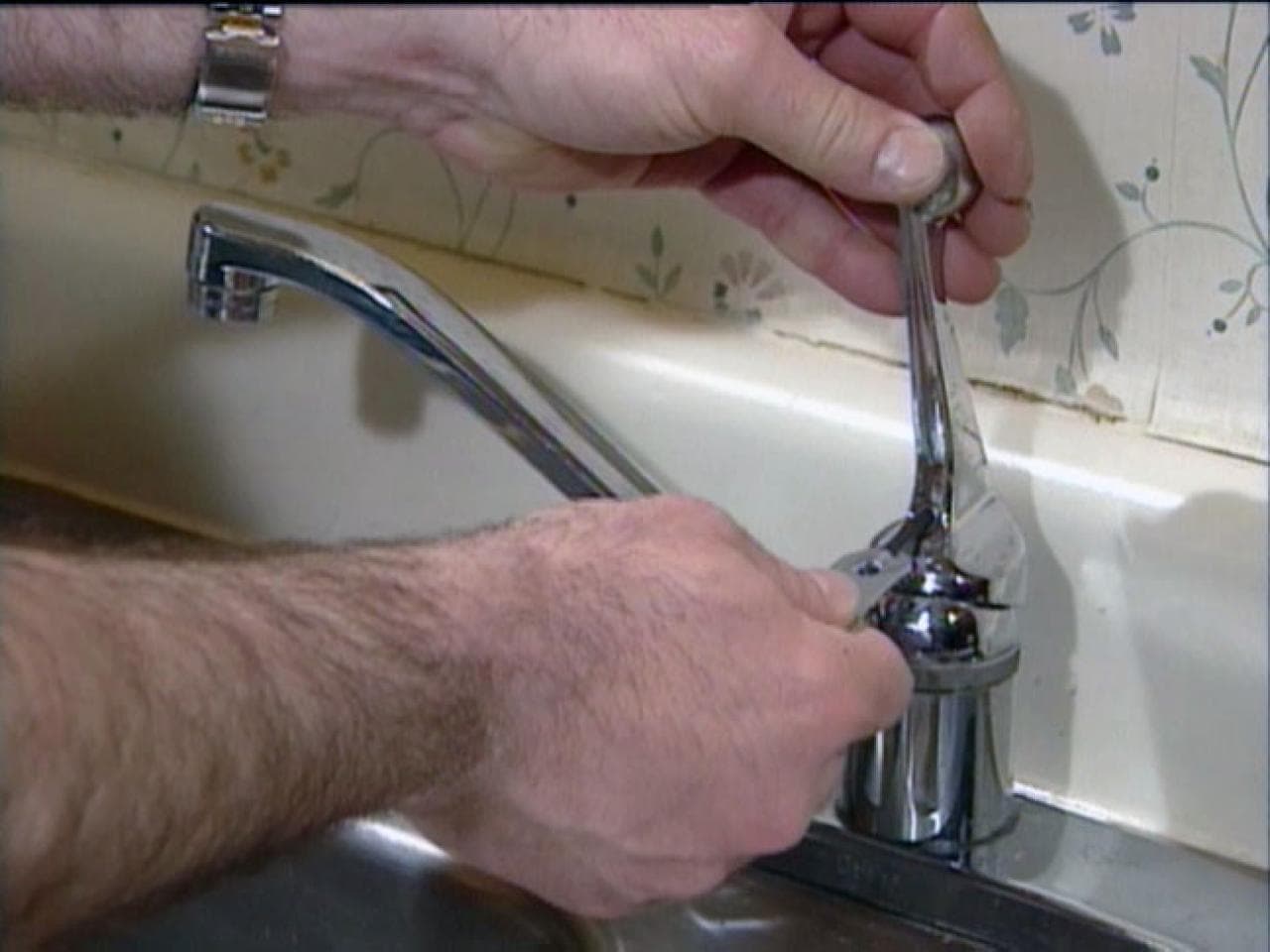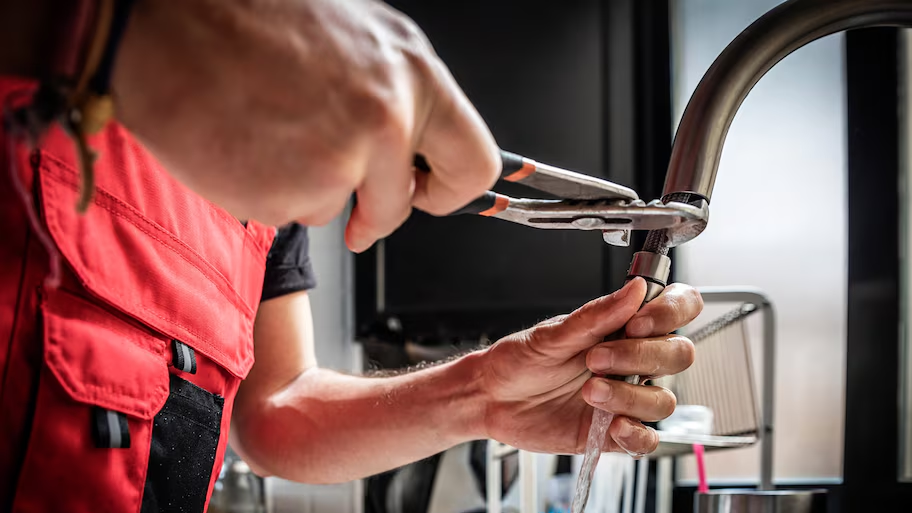The article author is making a few great points relating to What Causes Leaky Faucets & How To Fix Them overall in this content in the next paragraphs.

Leaking faucets could seem like a small aggravation, yet their influence exceeds just the inconvenience of the sound. From drainage to incurring unneeded financial expenses and wellness risks, overlooking a dripping faucet can lead to numerous effects. In this write-up, we'll look into why it's crucial to resolve this usual family concern promptly and successfully.
Wastefulness of Water
Environmental Influence
Dripping faucets add considerably to water wastefulness. According to the Environmental Protection Agency (EPA), a solitary tap dripping at one drip per secondly can squander greater than 3,000 gallons of water per year. This not just pressures water resources yet additionally influences ecological communities and wild animals based on them.
Financial Costs
Enhanced Water Bills
Past the environmental influence, leaking taps can inflate water costs significantly. The built up wastage over time translates into greater utility expenses, which might have been prevented with timely repair services.
Possible Home Damages
In addition, extended dripping can cause harm to fixtures and surfaces bordering the tap. Water accumulation can create staining, rust, and also structural problems if left neglected, leading to additional fixing expenses.
Health and wellness Worries
Mold and Mildew Development
The consistent existence of moisture from a leaking tap produces an optimal environment for mold and mold growth. These fungi not only endanger indoor air quality however also present health and wellness threats, especially for individuals with respiratory system problems or allergic reactions.
Waterborne Conditions
Stagnant water in dripping faucets can become a breeding place for bacteria and other pathogens, raising the risk of waterborne illness. Contaminants such as Legionella microorganisms prosper in stagnant water, potentially bring about significant illnesses when consumed or breathed in.
Do it yourself vs. Professional Fixing
Pros and Cons of Do It Yourself Repair Work
While some may try to fix a dripping tap themselves, do it yourself repairs come with their very own set of challenges. Without correct expertise and tools, do it yourself efforts can aggravate the problem or bring about incomplete repairs, lengthening the issue.
Benefits of Working With a Specialist Plumber
Hiring an expert plumber guarantees that the underlying cause of the leaking tap is attended to effectively. Plumbing professionals have the competence and devices to identify and repair tap concerns efficiently, conserving time and reducing the risk of more damage.
Step-by-Step Overview to Repairing a Dripping Tap
Devices Called for
Prior to trying to repair a dripping faucet, collect the necessary tools, including a flexible wrench, screwdrivers, replacement components (such as washing machines or cartridges), and plumber's tape.
Usual Faucet Issues and Their Solutions
Determine the type of faucet and the certain concern triggering the drip. Typical problems consist of damaged washing machines, rusty valve seats, or faulty O-rings. Refer to maker directions or on the internet tutorials for detailed support on repair work.
Safety nets
Normal Maintenance Tips
To avoid leaking faucets, carry out regular maintenance such as cleaning aerators, checking for leakages, and replacing damaged components promptly. Additionally, take into consideration mounting water-saving gadgets or updating to much more efficient components.
Significance of Prompt Repair Works
Attending to trickling taps as quickly as they're discovered protects against further water wastage and prospective damage, ultimately saving both water and cash in the future.
Effect On Residential Property Value
Understanding of Well-Maintained Residential Or Commercial Property
Preserving a property in good condition, consisting of resolving maintenance concerns like dripping faucets, enhances its viewed worth and charm amongst prospective buyers or occupants.
Influence on Resale Value
Characteristics with well-kept plumbing components, consisting of taps, command higher resale values in the property market. Resolving leaking taps can add to a favorable impression throughout home examinations and negotiations.
Ecological Duty
Specific Payment to Preservation
Taking obligation for taking care of dripping taps lines up with wider initiatives towards water preservation and ecological sustainability. Every person's actions collectively make a substantial effect on maintaining precious resources.
Lasting Living Practices
By prioritizing timely fixings and taking on water-saving behaviors, people contribute to lasting living practices that profit both present and future generations.
Final thought
Attending to a trickling tap surpasses simple comfort; it's a necessary step towards preserving water, reducing economic costs, and securing health and home. Whether through DIY repair services or professional support, doing something about it to deal with dripping faucets is a small yet impactful way to advertise liable stewardship of sources and add to a healthier, a lot more sustainable future.
How to Fix a Leaky Faucet: Step-by-Step Repair Guide
A leaky faucet may seem like a simple annoyance, but if it's not fixed promptly, that leak could cost hundreds to potentially thousands. From water damage to mold, mildew, and high water bills, even a tiny leak can be catastrophic if left unattended. Damage like this can even affect the overall value of your home, so it's important to take the right approach for leaky faucet repair. You may need the help of a plumber in some cases, but we've got a few tips you can try on how to fix a leaky faucet before calling the pros.
Four Faucet Types
When you're learning how to fix a leaky faucet, the first step is knowing what kind of faucet you're working with! There are four common types.
Cartridge Faucets
Cartridge faucets come in one- or two-handled varieties. In one-handled cartridge faucets, hot and cold water combines in a single cartridge. In the two-handled versions, hot and cold water are controlled separately and mixed in the faucet.
Ball Faucets
Ball faucets have a single lever you push up and down to adjust the pressure and rotate to change the temperature. A slotted metal ball controls the amount of water allowed into the spout.
Compression Washer Faucets
They're the oldest type of faucet, but they're still used in many homes — especially older ones. Compression faucets have two separate handles that, when turned, raise or lower the washer that seals a water valve. This valve stops water from flowing through the faucet when it is turned off.
Disc Faucets
Disc faucets rarely need to be repaired due to their maintenance-free design. The water flow is controlled by two discs — the upper one raises and lowers against a fixed lower disc, creating a watertight seal. If your disc faucet starts leaking, you may need to replace the seals or clean residue buildup from the inlets.
Fixing a Leaky Faucet
Step 1: Turn Off the Water
Whether you're learning how to fix a leaky bathtub faucet or how to fix a leaky kitchen faucet, always turn off the water supply to your working area when you're fixing a leak. The last thing you want is a flood added to your list of things to fix.
Look for the shutoff valves below your sink or around the tub and turn them clockwise to stop the water flow. If your faucet doesn't have shutoff valves, you may need to turn off the water for the whole house. Check to make sure it's off by turning the faucet on. If nothing comes out, you're ready to start the repair.
Step 2: Take Apart the Faucet
How you disassemble your faucet depends on the type of fixture you have. You can use a flathead screwdriver to remove the caps on top of the handle or handles for cartridge and compression faucets. Inside, you should see handle screws. Unscrew these with a screwdriver to remove the handle.
Disc- and ball-style faucets will typically have an inlet screw near the handle, and removing that will reveal the interior of the faucet.
Detach the Valve Stem
For cartridge- and compression-style faucets, you'll see the inner valve stem or cartridge once you remove the faucet handles. If you have a compression faucet, unscrew the brass valve stem. If you have a cartridge faucet, pull out the cartridge. If your cartridge has been in place for a while, it may require some tools or extra force to remove it due to mineral deposits.
Examine and Replace Parts
Once you've removed the parts, check them out to confirm what needs to be replaced. You may see corroded rubber washers, O-rings, stems, or cartridges. On a ball-style faucet, check the seats and springs for damage.
If you need to repair a leaky disc faucet, check the inlet and seals on the lower disc.
Once you determine what parts must be replaced, visit your local hardware store. Bring the damaged parts with you to ensure you can purchase the correct components to replace them.
Clean Valves and Faucet Cavity
If you've removed a stem or cartridge, you may notice mineral buildup in the faucet's threads. Use white vinegar to clean the valve seat by soaking it for a few minutes, then scrub it away with a soft toothbrush and rinse with warm water. You can also clean the interior of the faucet in the same way.
Reassemble the Faucet
Once your faucet is cleaned and the required parts have been replaced, it's time to reassemble it. Put the pieces back together and slowly turn the water supply back on. Doing this slowly is crucial because too much initial water pressure can damage the new hardware you've just installed.
https://homewarranty.firstam.com/blog/how-to-fix-leaky-faucet

As a fervent reader on Why Are My Faucets Dripping (And Can I Fix It Myself)?, I think sharing that piece of content was a smart idea. Loved our post? Please quickly share it. Help another person check it out. Thanks a lot for going through it.